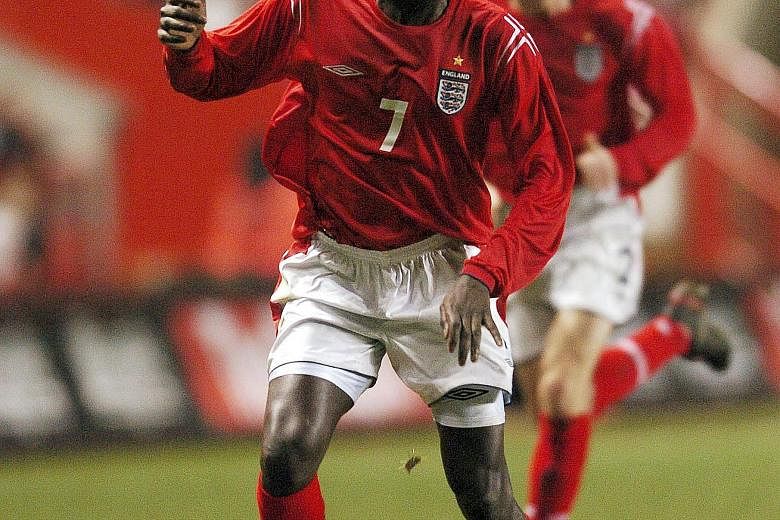LONDON • His football CV includes stints at Millwall, Cadiz, Plymouth, FC Haka, Panetolikos, FK Tonsberg and the Gambian side Samger FC. He won youth caps for one country and four senior caps for another, scoring once.
The statistics are, using the measures by which anyone can assess itinerant footballers who prowl the world looking for work, nothing at all remarkable.
Yet, statistics are exactly what Cherno Samba will be remembered by, after the self-styled "Championship Manager Legend" announced his retirement from football last week at 29.
The Gambia-born forward became one of the most vaunted properties in English football by his early teens. Michael Owen is said to have called Samba while the latter was on a bus home from school, urging him to sign for Liverpool.
Samba's promise prompted the popular manager-simulation computer game's creators to make sure they were ahead of the curve.
The Millwall academy player was given scores that reflected his clear ability and potential to become one of the world's best.
So computer gamers booted up the 2001-02 version of the game, made a beeline for a young and cheap Samba, and sat back while he fired them to glory.
It had been obvious since his departure from Millwall in 2004, having been paraded in front of the English Premier League's top clubs while concurrently allowing his talent to drift, that the facts would never do justice to the figures.
But while his career atrophied , his name reverberated around halls of residence and caused a buzz in student bars. Everyone has his own story of Samba, and perhaps a far more personal one than they might have had if they had actually known him.
The virtual version would be unfazed at the prospect of becoming the first-choice striker at 16 and would be the guaranteed bail-out option to take gamers exactly where they wanted to be.
England achieving 2006 and 2010 World Cup glory? Not a problem with him in the side.
This has been a curious period for those who follow the Championship Manager (now renamed Football Manager) cult .
The American counterpart to Samba, Freddy Adu, recently returned to his home country with Tampa Bay Rowdies, after failing to make the grade at Serbian minnows Jagodina or the moderate Finnish club, KuPS.
At Jagodina, there had been the hope his Championship Manager exploits might attract supporters to their stadium.
And fans who met Adu were indeed quick to thank him for his "virtual" services to their all-night sessions in front of the computer.
Imaginations may have been captured but Adu, struggling for fitness, made only one substitute appearance in the domestic Cup before being quietly released.
It is the blurring between fantasy and reality that has given the Championship/Football Manager video-game franchise its allure down the years.
Samba's and Adu's characteristics were ascribed according to real, visible evidence of potential.
If either had enjoyed something close to their projected career trajectory, the satisfaction and amusement in taking them to heights Lionel Messi could barely envisage would be far less.
They are far from the only players to have made a name through generous talent attribution, although it should be pointed out that the video games have a highly impressive record in anticipating future stars. Just one example is a young Zlatan Ibrahimovic, who was available for peanuts from Malmo at the turn of the century.
Names that inspire particular affection include the brilliantly-named Tonton Zola Moukoko, widely regarded as the poster boy for Football Manager prodigies but now plying his trade in Sweden's lower leagues.
Or the Sweden midfielder Kennedy Bakircioglu who has enjoyed a perfectly good career with clubs such as Racing Santander and Ajax.
However, he performed like a combination of Eusebio and Bobby Charlton in the virtual world.
The tales are many and the myths will endure - into what Samba hopes will be a fruitful career as a coach.
In his retirement statement, he thanked the media for their role in his life as a player.
"I might not be where I am today without their exposure and writing about me," he said.
"My sincere gratitude to them as I consider them partners in football development."
THE GUARDIAN

